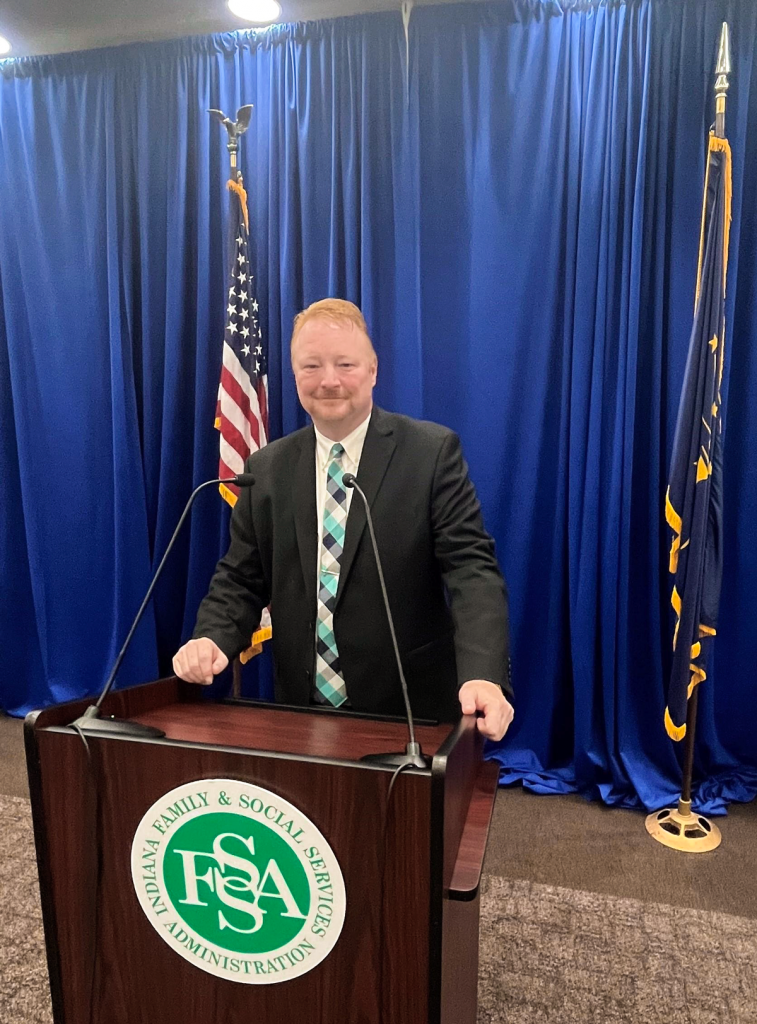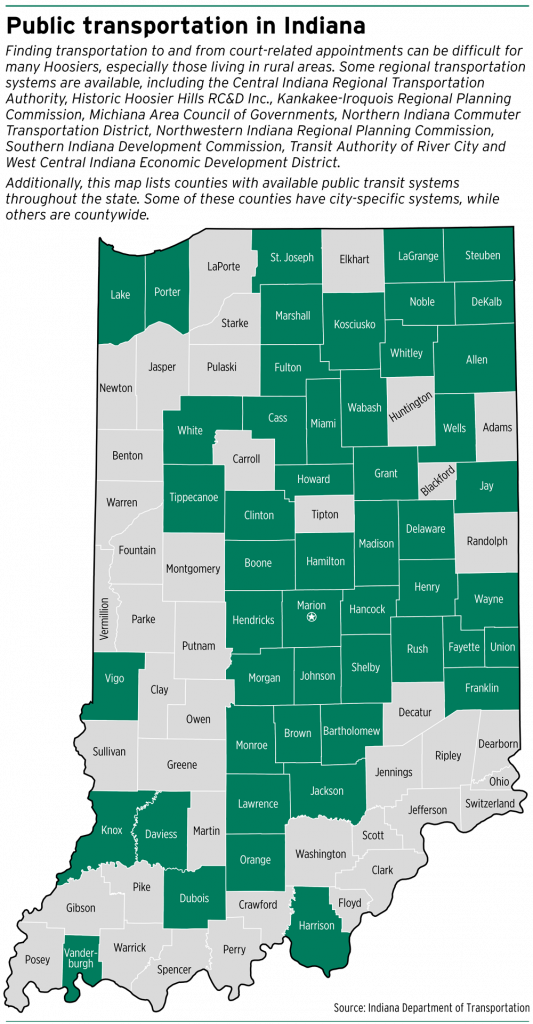Subscriber Benefit
As a subscriber you can listen to articles at work, in the car, or while you work out. Subscribe Now
As a rural area in the western part of Indiana, Warren County and its residents face transportation barriers when it comes to getting around their community.
Thanks to new funding that became available to Indiana as part of the federal American Rescue Plan Act and the National Opioid Settlement, residents linked to the county’s judicial system will get some needed transportation assistance.
The Warren Circuit Court was recently awarded a $164,978 grant from the Indiana Family and Social Services Administration. The grant, according to FSSA, is designed to “provide reliable transportation to places of employment, SUD (substance use disorder) and mental health treatment, court, and other services.”
It will also provide substance use and opioid education to adolescents, prescribers, service providers and stakeholders to promote prevention and harm reduction.
“While the state has a role to play in the fight against the drug epidemic, real change happens at the local level,” Douglas Huntsinger, executive director for drug prevention, treatment and enforcement for the state of Indiana, said in a statement. “Any time we have an opportunity to infuse more dollars into a community for the benefit of Hoosiers, we take advantage of it. These funds will go a long way toward building out the care continuum and improving outcomes for Hoosiers with substance use disorders and mental health needs.”
According to FSSA, as part of the National Opioid Settlement, its Division of Mental Health and Addiction, in partnership with Gov. Eric Holcomb’s office, awarded a total of $19 million in one-time funding to 30 local units of government, service providers and community organizations to support evidence-based prevention, treatment, recovery and harm reduction services, expand the behavioral health workforce, and implement other services and initiatives across the state.
Warren Circuit Judge Hunter Reece said the court is excited to be able to use the funds for a justice-involved individuals “free ride” program.
“It sprang from a discussion with neighboring counties looking at needs for our communities,” Reece said.
Fountain Co. included in transportation program
Neighboring Fountain County is a small, rural county like Warren, so the county’s judges often work together on projects.

Fountain Circuit Judge Stephanie Campbell said that after noticing the need for transportation, the courts looked into ways to address it.
“Judge Reece and I encounter transportation barriers in nearly all of our cases,” Campbell said. “We have to take this into account in all varieties of cases when ordering defendants to participate in services.
“Judge Reece had the idea to apply for a grant to develop the ride program,” she continued. “He was generous enough to include Fountain County in the grant application, as we share a great number of court participants and programs that serve both counties.”
“There is definitely a need in our community,” Reece added.
To participate, individuals can fill out a form explaining their situation, including how they are a justice-involved individual. Then, once accepted and approved, they can begin getting rides to court hearings, Alcoholics Anonymous meetings and job interviews.
“It helps people get back onto their feet,” Reece said. He added that the transportation program also helps individuals stay in compliance with court orders.
Reece gave the example of one man who was able to get a ride to a job interview, secure the job and eventually purchase his own car.
In rural areas, the judge said, there isn’t an alternative to get to a court hearing when one’s car breaks down.
“It’s something we take for granted in urban areas,” he said.
Building out resources
 According to the Indiana Department of Transportation, 50 of the state’s 92 counties have a public transit system.
According to the Indiana Department of Transportation, 50 of the state’s 92 counties have a public transit system.
Reece said one of his personal goals is to have the same number of resources available in his community as there are in urban communities.
Prior to being awarded the new grant funding, Reece said the court started with another grant that allowed them to hire bus drivers and get buses. That program is completely free to participants, he said.
When the program first started, there were 500 rides given within the first seven months. But the court couldn’t accommodate all the requests.
One of the obstacles the program faced in the beginning was finding drivers and vehicles during the COVID-19 pandemic, when everything was in short supply.
And while they requested $190,000 and received $164,978, the judges say they are glad to be able to continue providing rides.
Education about substance abuse
A second initiative the grant funds will support is the creation of a program in schools to increase awareness about substance abuse.
“The grant goes toward combatting substance abuse disorder in our communities,” Reece said. “We want to break the chains of addiction.”
He noted that it is difficult to address addiction, but the hope is that having educational programs for local kids will be a starting point.
The grant will last until the end of 2025.
“We realize this can’t last forever,” Reece said. “We want to get it up and running and for people to see there is a need.”•
Please enable JavaScript to view this content.
